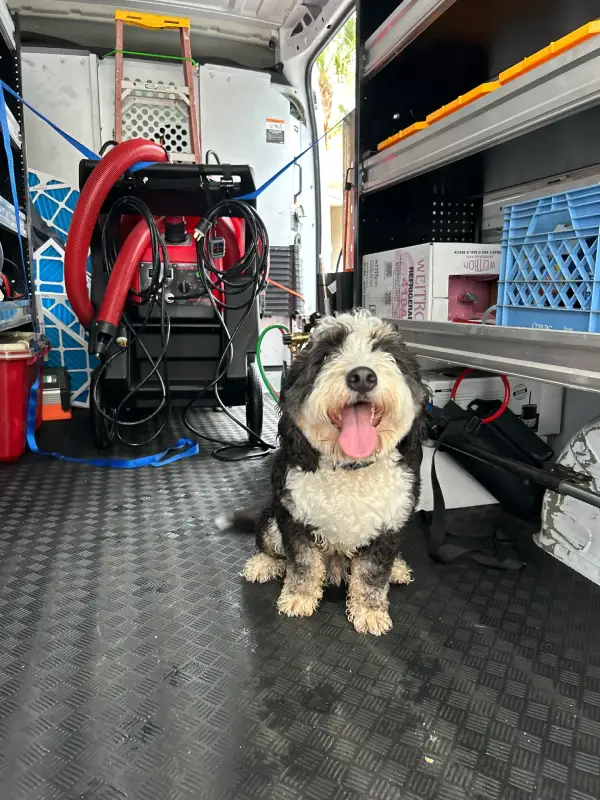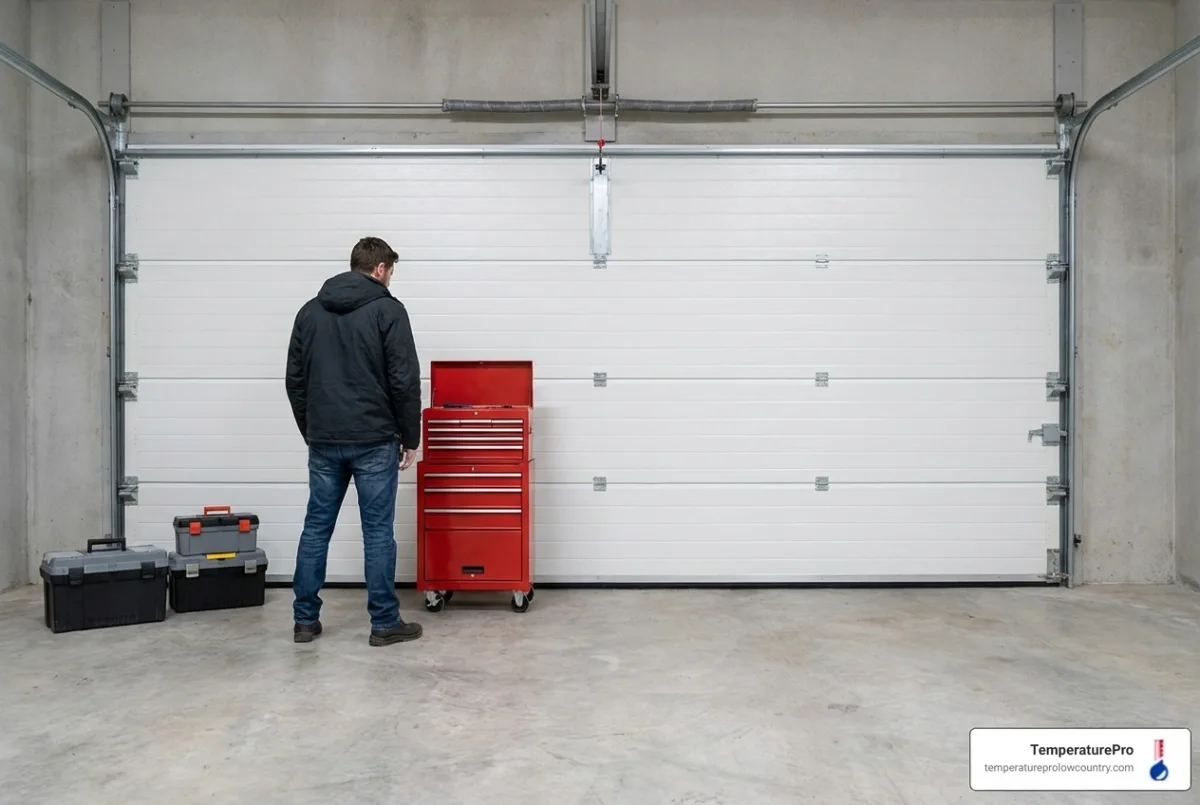

If you’ve noticed water collecting around your AC unit, it’s easy to think it’s just normal condensation. But when puddles start forming, especially during the hotter months in Hilton Head Island, it’s often a sign that something isn’t working the way it should. Over time, even small leaks can lead to bigger issues like damage to your floors, walls, or insulation. Ignoring water buildup can also open the door to mold growth and air quality problems.
Homeowners often spot these puddles and wonder where the water is coming from and whether it means their system is failing. The good news is, this kind of issue doesn’t always mean a total breakdown. But it does mean it’s time to look a little closer at your system. Understanding why these puddles form helps you take action before the problem gets worse.
Common Causes Of Water Puddles Around Your AC Unit
Several things can cause your AC system to leak water. Some of them involve serious repairs, while others may be easier to manage. It's helpful to know what you're dealing with before the water leads to trouble inside your home.
Here are a few common reasons puddles form around your AC:
- Clogged condensate drain line: Your system pulls moisture from the air, and that moisture drains through a small pipe. Over time, this line can get clogged with dirt or algae. When that happens, water backs up and spills around the unit.
- Malfunctioning condensate pump: Some systems rely on a pump to move condensation out of the house. If the pump fails or jams, water has nowhere to go and pools around the base of the unit.
- Low refrigerant levels: Refrigerant helps keep your system cool and running properly. When levels are too low, the coil can freeze. Once it melts, the excess water may overflow the drain pan.
- Dirty air filters: When filters are covered in dust and debris, airflow drops. That can cause moisture to build up on the coil, leading to leaks as the system struggles to operate efficiently.
Let’s say, for example, a homeowner in Hilton Head Island calls about a water stain near their AC closet. They haven’t changed their filter in a few months, and it turns out the clogged filter led to poor airflow, causing the coil to ice up. As the ice melted, it overflowed the drain pan and dripped onto their flooring. This is something our technicians see regularly, especially during high-use seasons like late summer.
Many of these issues are easy to prevent with a good maintenance habit. But once water starts forming, it’s best to act quickly, especially in a humid region like Hilton Head Island.
Immediate Steps To Take When You Notice Water Puddles
Finding a puddle near your AC doesn't always require panic, but it does call for some quick action. Here’s what to do right away:
1. Turn off the unit: This keeps the system from making the problem worse while you investigate. It also protects internal components from further damage if there is a clog or frozen coil.
2. Check the drain line: Look near the base of the indoor unit for a narrow PVC pipe. If you can see buildup around the pipe opening, that might be the source of the leak.
3. Inspect the air filter: Remove the return panel and check the filter. If it's dirty or clogged, replace it. A fresh filter improves airflow and reduces the chance of freezing.
4. Look at the overflow pan: Some systems have a secondary drain pan to catch excess moisture when the main line fails. If this pan is full or rusted, it’s a likely cause of the pooling.
After you’ve checked these spots, it's time to get help from our professionals. Even if the issue seems small, trying to clear the line or open the drain on your own can lead to more damage. Our technicians know how to pinpoint the root cause and get your system running safely again without the extra mess.
Small fixes today can prevent bigger, more expensive repairs tomorrow. If signs like musty smells, water stains, or ice on the coil continue, that’s a strong clue that the system needs professional service — and fast.
Preventative Measures For Hilton Head Island Homeowners
Keeping your AC unit running without leaks or moisture problems begins with good habits. For homeowners in Hilton Head Island, consistent maintenance makes a big difference, especially with the high humidity that’s common during summer. Instead of waiting for water to show up, there are a few practical steps you can take ahead of time.
Here’s what helps prevent future puddles:
- Schedule routine AC maintenance once or twice a year. Regular service keeps your system clean and efficient and gives technicians a chance to catch problems before leaks start.
- Replace dirty air filters every 1 to 2 months, depending on usage. Clogged filters restrict airflow and can easily trigger ice buildup on the coils.
- Make sure your AC unit is level. When the unit tilts, water may not drain properly and could end up inside your home.
- Perform quick monthly checks during heavy-use seasons. Look at the drain line, listen for unusual noises, and watch for signs of moisture around the unit.
If your system is older or struggles to keep up during high-demand months, it's even more important to stay ahead of wear and tear. A homeowner in Hilton Head Island once mentioned noticing water spots near their baseboards two summers in a row. After a few missed filter changes and no inspections, it turned out their drain line was completely gunked up. Avoiding the same issue can be as simple as setting a maintenance reminder on your calendar.
Letting water build up around an AC unit may not seem urgent, but it adds up over time. Mold growth, structural damage, and poor air quality all become more likely when leaks go untreated. With Hilton Head Island’s climate, ignoring preventative steps can leave your home vulnerable, not just your cooling system.
Benefits Of Regular AC Maintenance In Hilton Head Island
Keeping your AC system in check with ongoing care does more than prevent water leaks. Hilton Head Island homeowners who follow a consistent maintenance plan will notice smoother performance during the hottest months and fewer unexpected disruptions when they need cooling the most.
Here are a few direct benefits of staying on top of AC maintenance:
- You reduce the chance of water-related damage caused by neglected components like clogged drain lines or malfunctioning pumps.
- Your system runs more efficiently, using less energy to cool your home and helping keep your monthly utility bills consistent.
- Preventative checks protect the lifespan of your unit, especially during high-demand seasons where wear and tear can accelerate.
- Clean filters and properly functioning drainage paths keep indoor air healthier, reducing moisture levels that can impact allergies or breathing.
While maintenance might feel like a chore, it gives you more control and fewer surprises. Just like oil changes keep your car running longer, regular AC service protects your comfort during the summer in Hilton Head Island.
Keep Your Home Dry, Cool, And Protected
Small signs like puddles near your AC or an unusual smell inside your home have a way of turning into bigger repairs when ignored. Many water-related AC issues take root long before visible signs appear. That’s why early action matters. If your unit has leaked once, it’s almost guaranteed to do it again if the root cause isn’t addressed.
Moisture buildup doesn’t just affect your equipment. It affects the space your family lives in every day. With Hilton Head Island’s summer humidity, this issue can quickly escalate, possibly damaging your floors, walls, or insulation. A clear, well-maintained system allows for proper drainage and helps your cooler stay functional through the toughest heat. Consistent, professional upkeep is the best way to keep your home dry and your AC working exactly as it should.
Keeping your AC unit running efficiently is key to preventing leaks and ensuring reliable comfort during hot summer months in Hilton Head Island. Regular AC maintenance in Hilton Head Island not only helps dodge costly repairs but also extends the lifespan of your system. TemperaturePro Bluffton recommends staying proactive with inspections so that small issues don't turn into major problems. For a quick estimate or to book a service visit, please contact us today.

Financing











.webp)








.avif)
